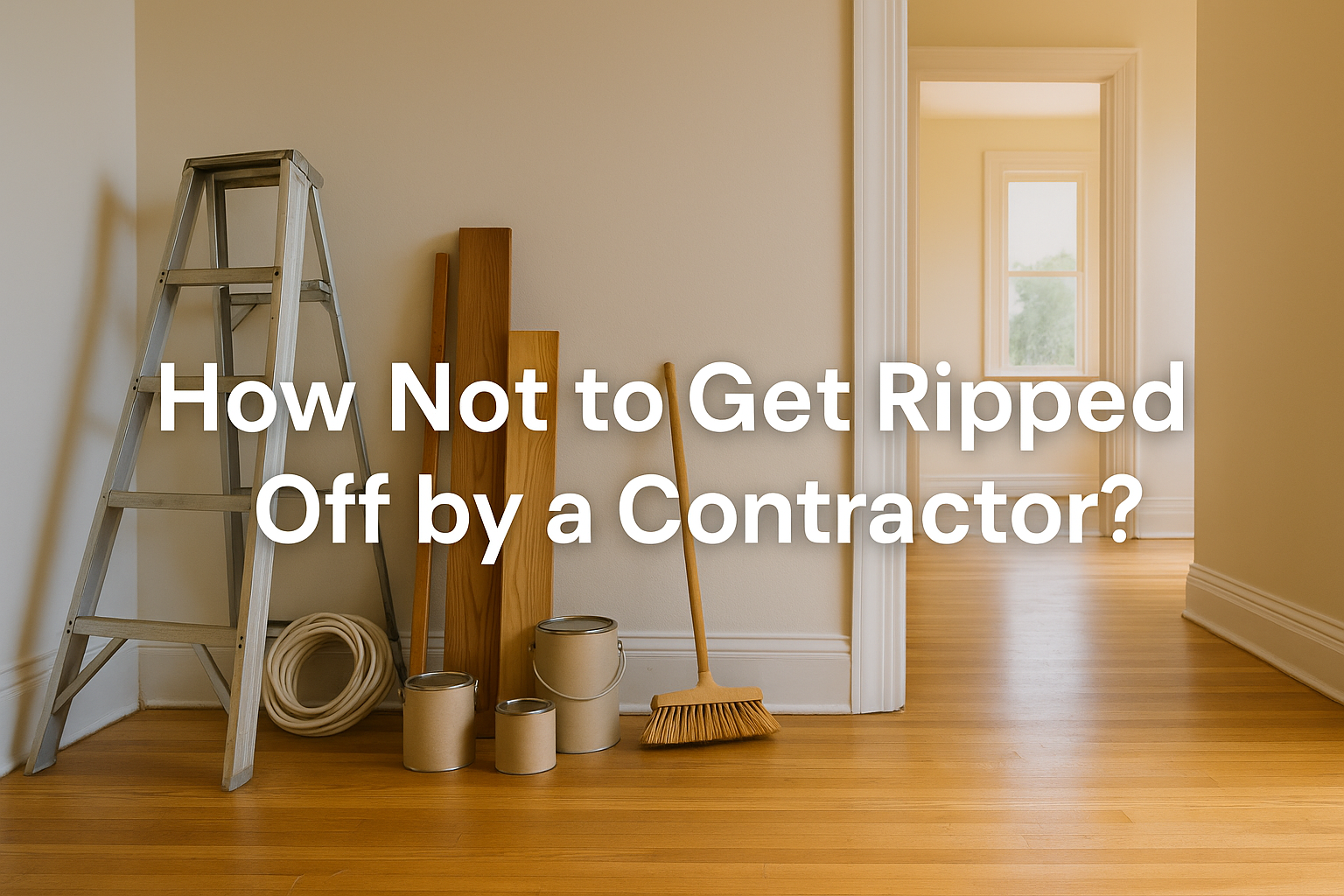
How Not to Get Ripped Off by a Contractor?
Hiring a contractor is one of the most important decisions you’ll make when building, remodeling, or renovating your home. Unfortunately, many homeowners have stories of contractors who overcharged, delayed projects, or delivered subpar results. To protect your investment, you need to know the right strategies to avoid scams and ensure a smooth construction process. In Omaha, NE, working with a Reliable New Builds Contractor in Omaha can make all the difference. When you choose professionals with a strong reputation, you reduce your risks and enjoy peace of mind. But how do you avoid getting ripped off by a contractor in the first place? Let’s dive into the details.
1. Do Thorough Research Before Hiring
The first step in avoiding scams is research. Don’t hire the first contractor you come across. Instead, look into multiple contractors in your area, read reviews, and check their references.
- Search for online reviews on trusted sites.
- Ask for word-of-mouth recommendations.
- Check the Better Business Bureau (BBB).
By carefully vetting options, you can filter out unreliable choices early. In Omaha, choosing a Reliable New Builds Contractor in Omaha with verified experience is your safest bet.
2. Always Get Multiple Quotes
Don’t settle for one estimate. Ask at least three different contractors for a detailed quote. This way, you can compare labor costs, materials, and timelines.
Be cautious if one contractor gives you a price that’s significantly lower than the others—it could mean they’re cutting corners or planning to add hidden costs later.
3. Check Licenses and Insurance
A trustworthy contractor should have the proper licenses and insurance. These documents protect both you and the contractor in case of accidents, damages, or disputes.
- Ask to see copies of licenses.
- Verify insurance coverage for liability and worker’s compensation.
Without these, you’re exposing yourself to unnecessary risks.
4. Insist on a Written Contract
A handshake agreement isn’t enough. Always get everything in writing. A solid contract should include:
- Project scope
- Payment schedule
- Deadlines
- Materials list
- Warranty details
Contracts protect you legally and make sure both sides are clear on expectations.
5. Avoid Paying Too Much Upfront
One of the most common ways homeowners get ripped off is by paying a large sum upfront. While a small deposit is standard, you should never pay the full amount before work begins.
A reliable contractor will agree to milestone payments—where you release funds after certain stages are completed.
6. Watch for Red Flags
Be cautious if a contractor:
- Refuses to provide references
- Asks for cash-only payments
- Doesn’t have a business address
- Pressures you into signing quickly
These warning signs often indicate someone who may not deliver quality work.
7. Inspect Work Regularly
Don’t just trust that the work is being done correctly. Visit the site often to monitor progress and check quality. Take photos, ask questions, and request updates.
By staying involved, you catch potential issues early before they become expensive mistakes.
8. Demand Quality Materials
Some dishonest contractors will charge you for premium materials but use cheaper substitutes. Protect yourself by reviewing the materials list in the contract and checking deliveries.
If you’re ever unsure, ask for receipts or visit the supplier directly.
9. Use Escrow or Payment Services
To add another layer of protection, you can use escrow services. With this method, your payment is held by a third party and only released when milestones are met.
This ensures you don’t lose money if the contractor abandons the project.
10. Work With Reputable Local Contractors
Finally, the best way to avoid getting ripped off is to work with established contractors in your community. Local contractors rely on their reputation and repeat business. In Omaha, a Reliable New Builds Contractor in Omaha will prioritize your satisfaction to maintain credibility in the market.
FAQs
1. What is the most common contractor scam?
Overcharging for materials or requesting large upfront payments without completing the work.
2. How do I know if my contractor is legitimate?
Check licenses, insurance, references, and online reviews before hiring.
3. Should I pay contractors in cash?
No. Always use traceable payment methods like checks or bank transfers.
4. Can I negotiate with contractors?
Yes. You can negotiate on labor costs, payment schedules, and materials.
5. How much deposit is reasonable?
Typically 10–20% of the total project cost is acceptable.
6. What should I include in a contract?
Scope of work, payment terms, deadlines, materials, and warranties.
7. Can contractors raise prices mid-project?
Only if agreed upon in writing due to material price increases or scope changes.
8. How often should I inspect the project?
At least weekly, or more often if major work is being done.
9. Do contractors provide warranties?
Reputable contractors usually offer warranties on both materials and labor.
10. Why choose local contractors in Omaha?
Local contractors are easier to verify, have reputations to uphold, and offer better accountability.
All Categories
Recent Posts
Can You Build a House for $500k?
Can You Build a House for $80,000?
How Much Would It Cost to Build a 30×30 House?
Tags
MON-SAT 8:00-9:00
+91 69 863 6420



